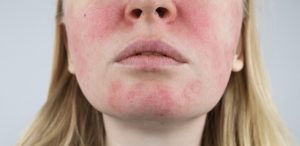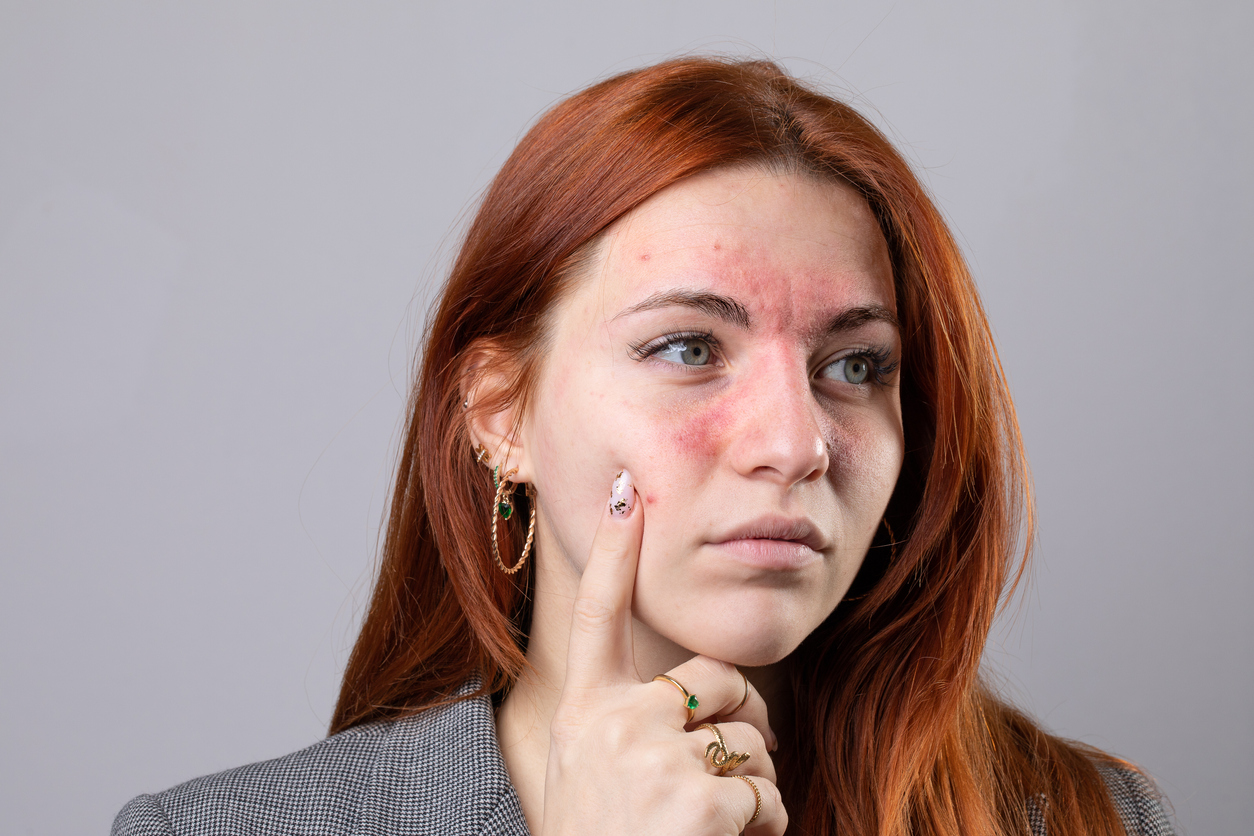Your skin is a self-repairing, living suit of armor, protecting you from pathogens, cuts, blows, and all manner of damage as you navigate our world. But human skin is more complex than most of us realize.
As the largest organ of the human body, our skin can behave in surprising ways—some of them frustrating, embarrassing, and uncomfortable.
Rosacea affects as many as 14 million Americans. Though lesser known than its more common counterparts—acne and eczema—rosacea is responsible for aggravating flare-ups, painful flushing, and numerous other symptoms on a daily basis.
So, what is this chronic skin condition? What causes it and how is it treated? Today, Rodgers Dermatology in Frisco, TX, offers answers to your most frequently asked rosacea questions.
Rosacea FAQs – Answering Your Dermatology Questions in Frisco, TX
Most of us won’t make too much of a pain in our side or ache in our knee. Because we can’t see what’s going on beneath the skin, we wait and observe our symptoms.
Chronic skin conditions, on the other hand, exist in full view, puzzling and frightening us. Thankfully, the best defense against confusion is education. Here are the answers you need to understand the skin you’re in.
What is Rosacea?
Rosacea is a diagnosable skin condition best known for causing long-term redness or flushing on the face. Rosacea is often confused for other outbreaks, such as dermatitis or acne. Similar to these conditions, rosacea manifests as flare-ups that can last for months at a time.
Common symptoms of rosacea include:
- Persistent flushing or redness
- A burning sensation
- Pimples or bumps
- Visible or enlarged facial veins
- Eye irritation
- Others
Rosacea is most common in middle-aged or older adults. Women and those with fairer skin are more likely to experience rosacea, especially if a close family member has a history of similar symptoms.
What Causes Rosacea?
At the moment, there is no consensus in the medical community about a single or exact cause for rosacea. There is some research to suggest that the condition runs in families, but this is not always the case.
While we don’t yet know what causes rosacea, we do know a few common triggers. Rosacea triggers can cause or worsen flare-ups, and may include:
- Excessive sun
- Alcohol
- Spicy foods
- Hot drinks
- Certain medications
- Some dairy products
- Stress
- Strenuous exercise
- Temperature extremes
What Does Rosacea Look Like?
Rosacea commonly exhibits as redness or flushing combined with small bumps which are sometimes pus filled. While occasional flushing is common, rosacea redness may last for days, weeks, or even months at a time.
Rosacea can also enlarge facial blood vessels. In some cases, rosacea can even thicken skin on and around the nose. If you experience frequent, persistent redness and small bumps, it may be time to speak to a dermatologist in Frisco, TX. Call (972) 808-5196 to schedule a quick checkup today.

Does Rosacea Itch?
Rosacea can cause itching in some people, but common symptoms are most often described as a burning or stinging sensation. The small bumps that accompany rosacea flushing can also feel itchy.
A dermatologist can prescribe or recommend topical solutions to manage rosacea itching. Speak to your dermatologist today about your options.
Is Rosacea an Autoimmune Disease?
Rosacea is an inflammatory disorder that exhibits links with other autoimmune diseases. Some research suggests that those with rosacea symptoms may also have higher rates of autoimmune disease, but more research is needed to confirm this.
Is Rosacea Contagious?
No, rosacea is not contagious. Rosacea symptoms may often be confused as signs of dermatitis (rashes), though this condition is also not contagious.
Some common skin conditions that are contagious include shingles, herpes, impetigo, and scabies. Rosacea, however, is not among them.
Schedule Your Dermatologist Appointment Today
If you’ve asked any of the above questions about your skin irritation, it may be time to schedule an appointment with a trusted, local dermatologist. While rosacea has no known cure, it has plenty of available, easy-to-use, and effective treatment options which can drastically limit your discomfort and your flare-ups.
To enjoy more days on average, attend social events with confidence, and love the skin you’re in, call Rodgers Dermatology in Frisco, TX, at (972) 808-5196 or contact us online.
Find a Rosacea Treatment That Works For You Today!
In the Dallas-Fort Worth Metro area, our humid, subtropical climate plays all sorts of tricks on our skin. Rosacea reacts to temperature extremes and abundant sunshine—two facts of life in Texas. Together with Dr. Rodgers, you can find a way to easily manage your rosacea symptoms for a happier, healthier daily life. Schedule your appointment today and enjoy more days without flushing, redness, or flare ups.

